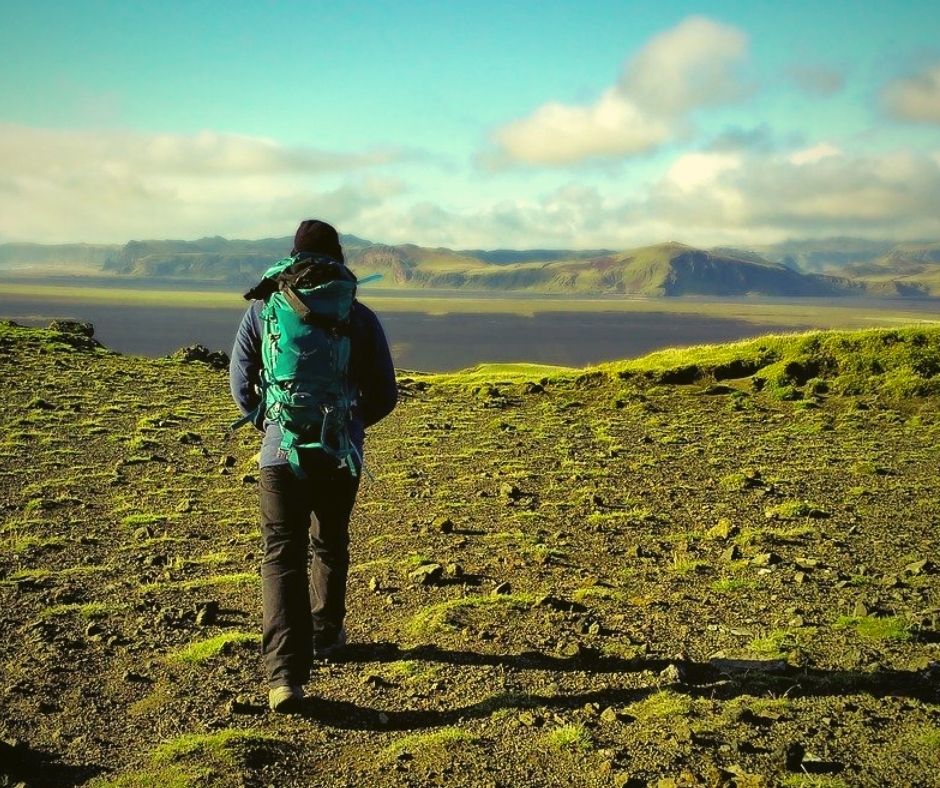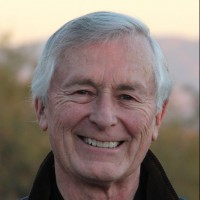My Story: Archetypal Themes, Plot Twists, and Becoming the Storyteller
Like many stories, my story has archetypal themes and plot twists that led me to my current story.
When I was growing up, the steel industry seemed to define my hometown of Pittsburgh, Pennsylvania. My father worked in production planning and later, marketing, for U.S. Steel. As a teenager, I followed in his footsteps, taking various summer jobs in the plants. The practical side of me was preparing for a career where hard work would pay off in the form of security. At the same time, part of me longed for adventure. Some summers, I hitchhiked around the United States and Mexico, picking up odd jobs along the way. I was young and not quite ready to get serious about life and begin living the story that was prewritten for me: the story of a hard-working young man following his father’s example.
Growing up, I internalized the belief that achievement is important and adventure is something to pursue in youth for a little while before settling down into a steady job that can support a family. Education was a means to an end. I was taught that whatever psychological and spiritual questions I might have could be answered by organized religion. Life was simple, and I did as my family expected. I believed the reward for my hard work would be financial success along with, presumably, happiness and a sense of fulfillment.
Many people live according to the stories handed down to them by their families and communities. As a teenager, I was interested in the liberal arts and spirituality but decided to take metallurgical engineering in college. The study of the properties of metal was grounded in practicality. I busied myself with algorithms and formulas. However, when graduation rolled around, I decided to follow my heart: I applied to graduate school in clinical psychology. It was an unheard-of pursuit among the men in my family and neighborhood. Nevertheless, I felt compelled to learn more about the mind and the soul.
I received an acceptance letter to the university, but my fear of stepping out into a new story, one that I had written myself, was too great. I decided to earn a master’s degree in business instead, and studied finance and management, earned a PhD, taught classes, got married, and became a father. Then, I moved to Chicago to work for an independent oil company. The story seemed to be writing itself at this point. I became president of the company, and we invested in and started other businesses.
Carl Jung, the famous founder of analytic psychology, believed that the stories of our lives are fueled by archetypal energies that exist in the collective unconscious. If we don’t work with these energies consciously, they will fuel life stories written by others instead of stories we have scripted ourselves. For me, it could be said that the energy of the hardworking Everyman was determining my choices and experiences. The Everyman is the archetype of the ordinary fellow who does what’s expected of him, who doesn’t stand out from the crowd, and who continues along a predetermined path without looking back or to the side, simply moving forward in a predictable way.
There was another archetypal energy affecting my story, however. Its force wasn’t as strong as that of the Everyman, but the energy of the Traveler or Adventurer was influencing me nonetheless. I longed to travel not just to other places but to experience first-hand what I had only read about in books. I wanted to know what it was like to feel at one with God or Spirit. I wanted to explore the mysteries of love, death, and the mind. I read books on psychology and spirituality, attended church, and practiced martial arts and qigong. My Adventurer energy was growing stronger. I needed to write a new story for myself.
Twenty years or so after moving to the Midwest, I found myself ready to answer an inner calling, and I started graduate school in psychology. In my childhood, I had been drawn to fairy tales and folk tales from various traditions. These stories shared a universality that fascinated me. I was developing an interest in Jungian psychology with its emphasis on archetypal energies and stories. I met several Jungians and found them fun to be around. They knew how to laugh, and had more interest in mythology, dreams, poetry, and the stories of people’s lives than in what seemed to me dry psychological topics, such as the theory of learning, or how rats respond to stimuli. I wanted to explore the nonrational mind and discover how to gain insights and effect changes using symbols and energies hidden in the unconscious. About eight years after beginning my studies, I received my PsyD in Clinical Psychology and subsequently became a licensed clinical psychologist. Later, I became a Jungian analyst. I was living according to a completely new story.
One day, my wife, Pat, gave me a book on shamanism: Alberto Villoldo’s Shaman, Healer, Sage. I was so inspired that I decided to train as a shamanic practitioner. My story transformed again, this time incorporating shamanic study, practice, and eventually, teaching on staff at Alberto Villoldo’s Healing the Light Body School. I have since studied and worked with shamans on five continents.
I see a natural blending of the Jungian and shamanic traditions. Both require going beyond the limits of the rational mind and encountering and engaging with the collective unconscious we all share. My shamanic and Jungian experiences have greatly expanded my worldview and informed me in helping to serve others whether through teaching, writing, clinical practice, or philanthropic pursuits. That service is important to me because it gives me a sense of purpose and fulfillment. If my story were simply that of a man who started on one path and ended up on another, it wouldn’t be satisfying to me. I support many different charities now, but their missions have a common theme: helping others to write and bring to live a new life story for themselves instead of being trapped in the old story that was written by someone else.
Unlike when I was a child and I felt that external accomplishments were all that mattered, I now appreciate the value of my inner life and relating as best I can to the spirit from which I came, to which I will return—and which lives through me. The Everyman archetype still influences my story: I continue to live in Chicago, with my wife, Pat, and enjoy spending time with my children, stepchildren, and grandchildren. I continue to be involved in business and to maintain a clinical practice as a psychologist and Jungian analyst. That part of the story is conventional. However, now the Everyman dances with the Adventurer within me, joined by the Healer who wants to help others do the soul work of changing their stories and changing their lives.
My book, Change Your Story, Change Your Life is a natural manifestation of my desire to serve others in tangible ways. I am eager to share what I have learned and to encourage others to write a new story and access the energies that will make that new, more rewarding story replace the one that is no longer working for them.
By bringing my book to the public, I have begun to write a new story for myself, too. It’s a story that has required me to learn how to use an iPad and smartphone and discover the ins and outs of social media and apps. It’s a story that has helped me to better understand the electronically influenced world my grandchildren are growing up in. It’s a story of learning the new skill of writing books and conducting interviews with the media that takes me out of my more comfortable and familiar role of helping people one-to-one or in workshops where I am able to talk face-to-face with participants.
We can’t determine every chapter or section of our story. However, if we are courageous enough to begin to write a new one, it can be very enjoyable to discover archetypal themes, experience the surprise plot twists that arise and meet the new characters that introduce themselves into the narrative. My story and my role as its writer continue to make me feel excited about what the next chapter holds for me.
Are you living according to an old story, written by someone else? Are you ready to Change Your Story, Change Your Life?

You can learn more about transformation and how to change your story and your life by reading my books, including my latest, Go Within to Change Your Life: A Hidden Wisdom Workbook for Personal Transformation. They’re available at bookstores everywhere.

Carl
Carl Greer, PhD, PsyD, is a retired clinical psychologist and Jungian analyst, a businessman, and a shamanic practitioner, author, and philanthropist funding over 60 charities and more than 2,000 past and current Greer Scholars. He has taught at the C.G. Jung Institute of Chicago and been on staff at the Replogle Center for Counseling and Well-Being.
Sign up for announcements
Receive the latest announcements from Carl Greer and a FREE e-Book: 8 Steps to Change Your Life by Creating a New Story.
